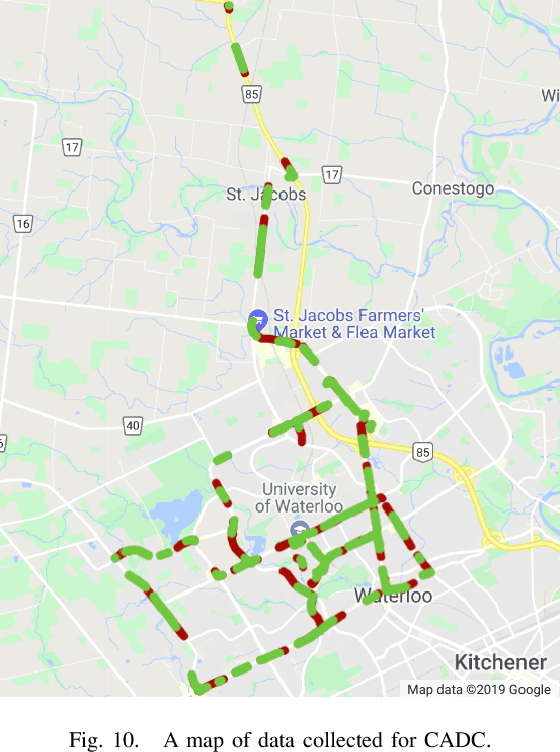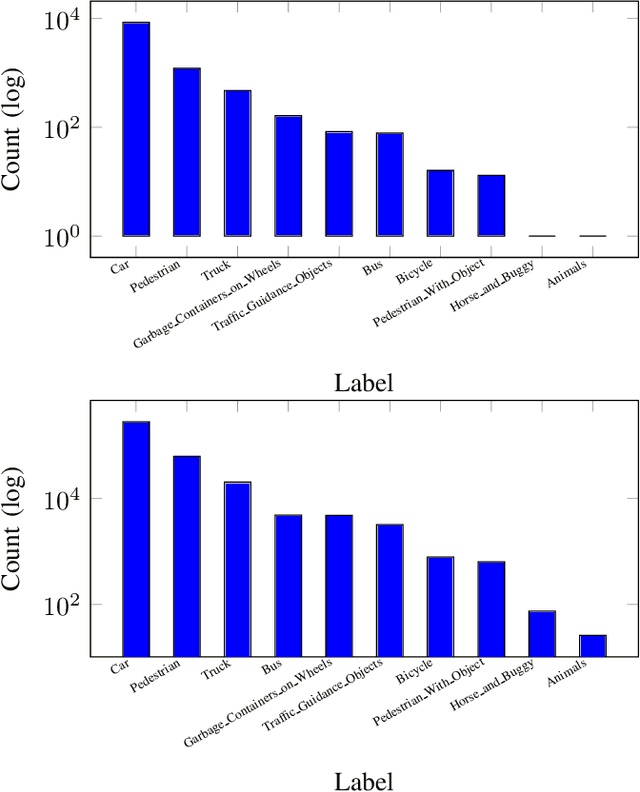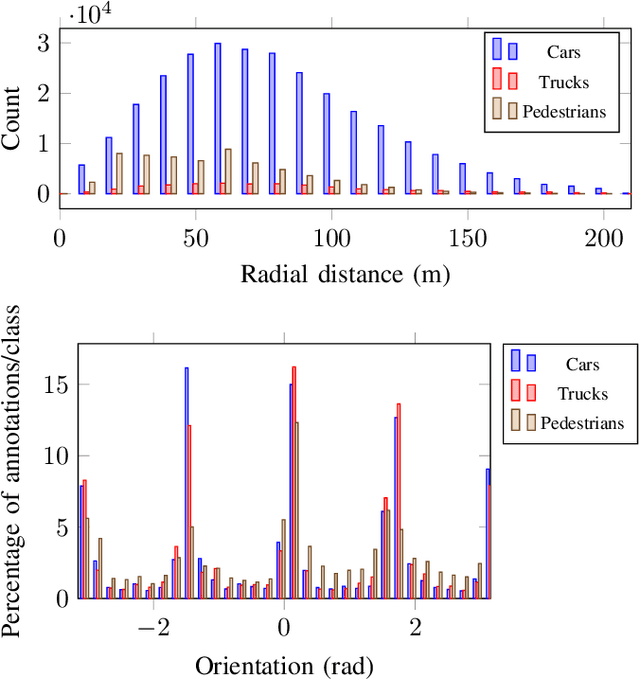Michael Smart
Canadian Adverse Driving Conditions Dataset
Feb 27, 2020



Abstract:The Canadian Adverse Driving Conditions (CADC) dataset was collected with the Autonomoose autonomous vehicle platform, based on a modified Lincoln MKZ. The dataset, collected during winter within the Region of Waterloo, Canada, is the first autonomous vehicle dataset that focuses on adverse driving conditions specifically. It contains 7,000 frames collected through a variety of winter weather conditions of annotated data from 8 cameras (Ximea MQ013CG-E2), Lidar (VLP-32C) and a GNSS+INS system (Novatel OEM638). The sensors are time synchronized and calibrated with the intrinsic and extrinsic calibrations included in the dataset. Lidar frame annotations that represent ground truth for 3D object detection and tracking have been provided by Scale AI.
BayesOD: A Bayesian Approach for Uncertainty Estimation in Deep Object Detectors
Mar 09, 2019



Abstract:One of the challenging aspects of incorporating deep neural networks into robotic systems is the lack of uncertainty measures associated with their output predictions. Recent work has identified aleatoric and epistemic as two types of uncertainty in the output of deep neural networks, and provided methods for their estimation. However, these methods have had limited success when applied to the object detection task. This paper introduces, BayesOD, a Bayesian approach for estimating the uncertainty in the output of deep object detectors, which reformulates the neural network inference and Non-Maximum suppression components of standard object detectors from a Bayesian perspective. As a result, BayesOD provides uncertainty estimates associated with detected object instances, which allows the deep object detector to be treated as any other sensor in a robotic system. BayesOD is shown to be capable of reliably identifying erroneous detection output instances using their estimated uncertainty measure. The estimated uncertainty measures are also shown to be better correlated with the correctness of a detection than the state of the art methods available in literature.
 Add to Chrome
Add to Chrome Add to Firefox
Add to Firefox Add to Edge
Add to Edge